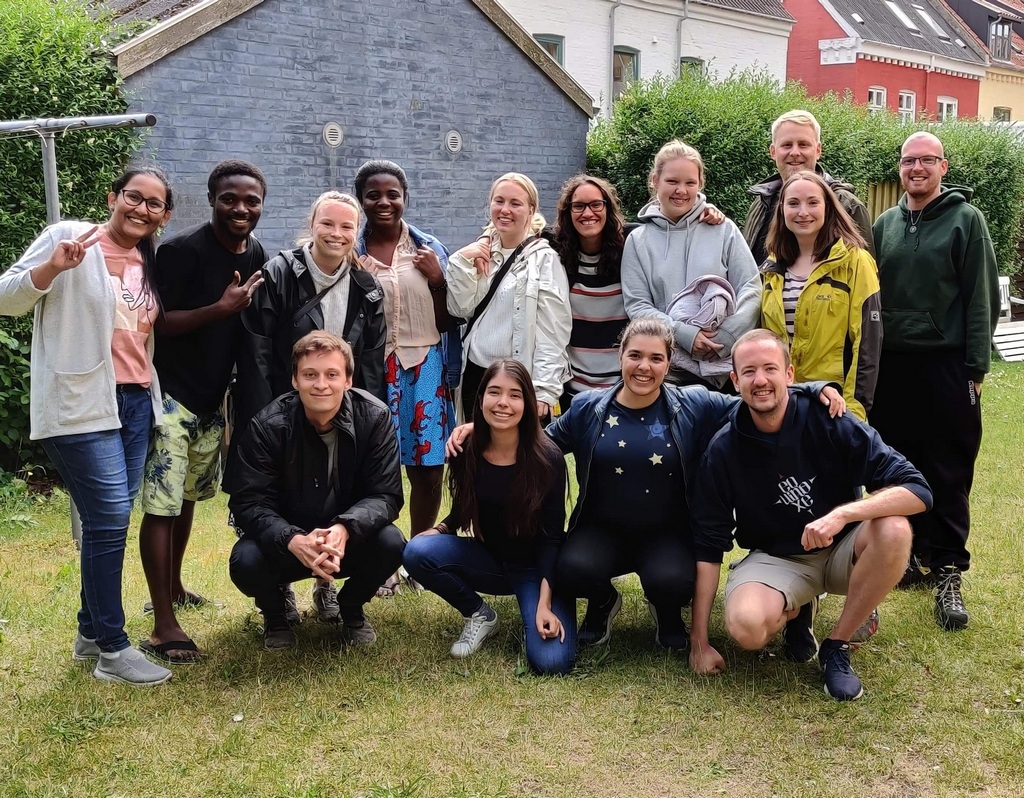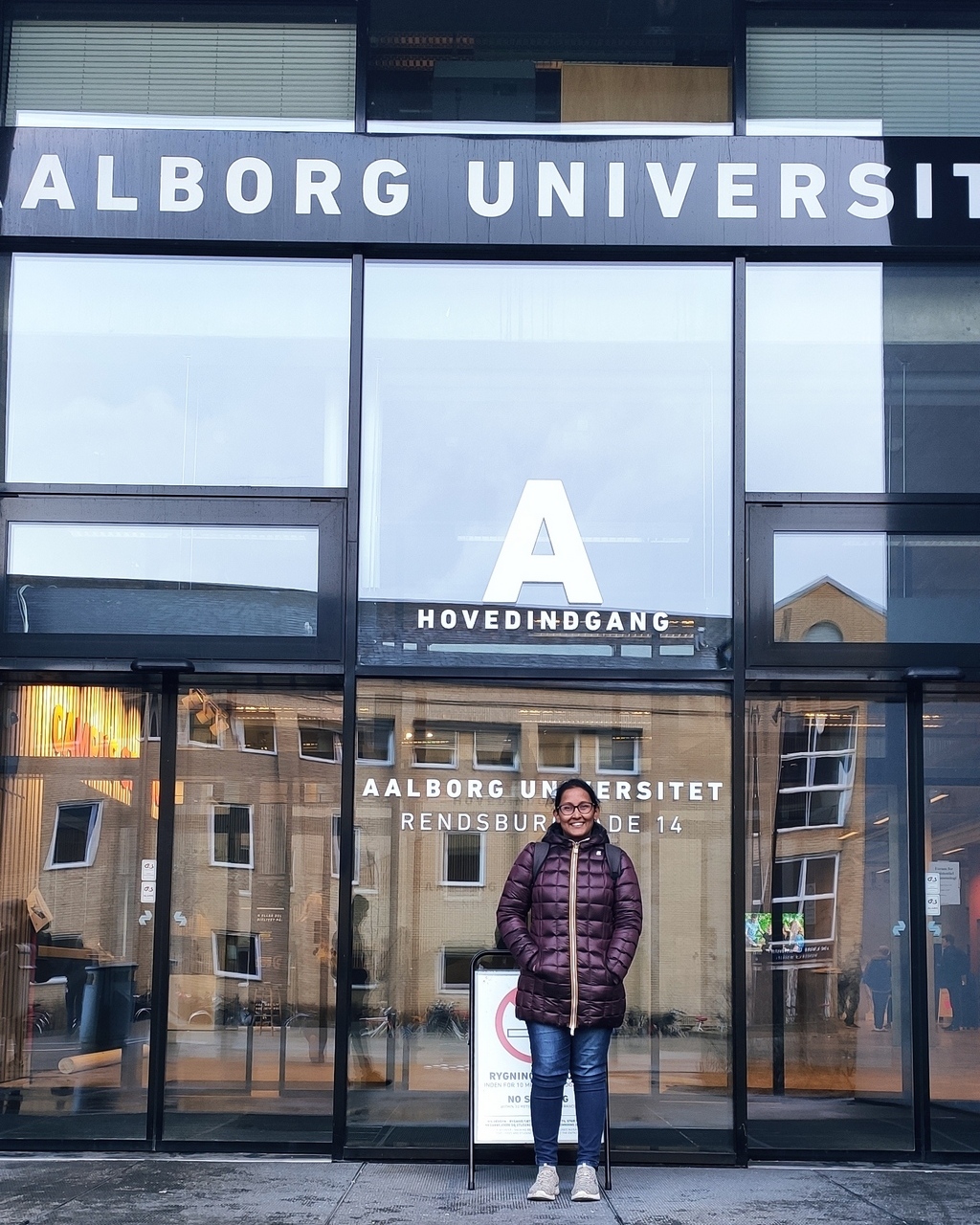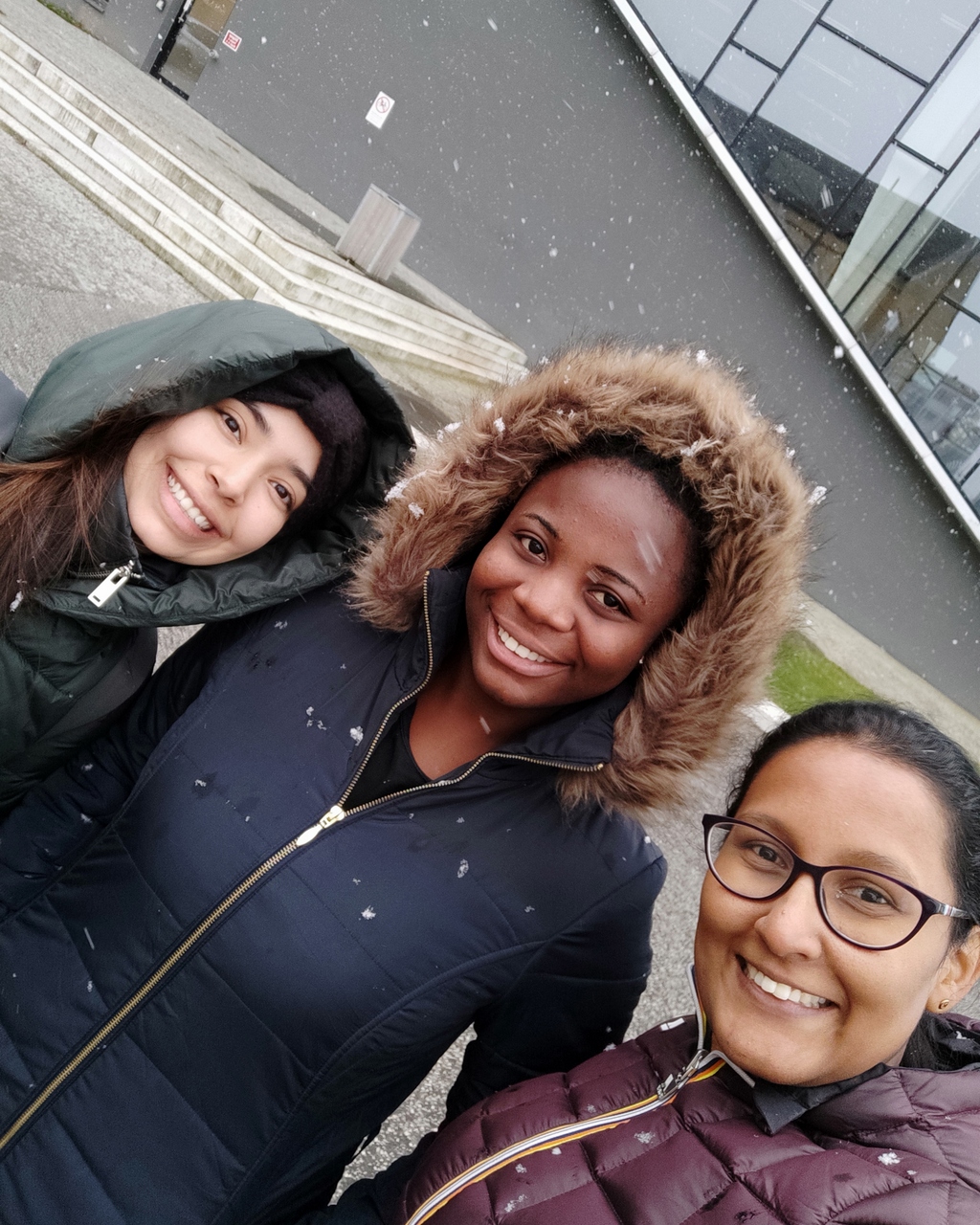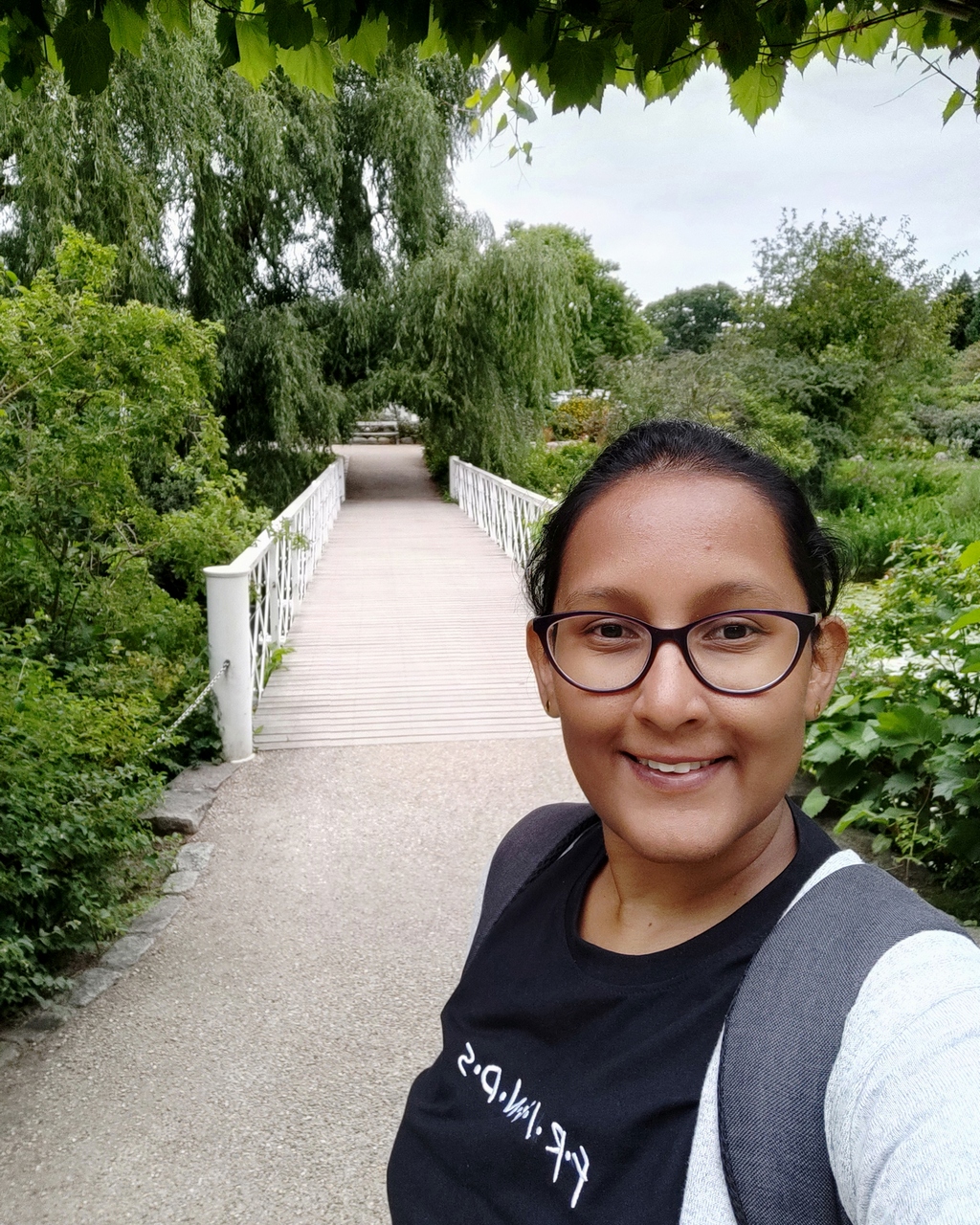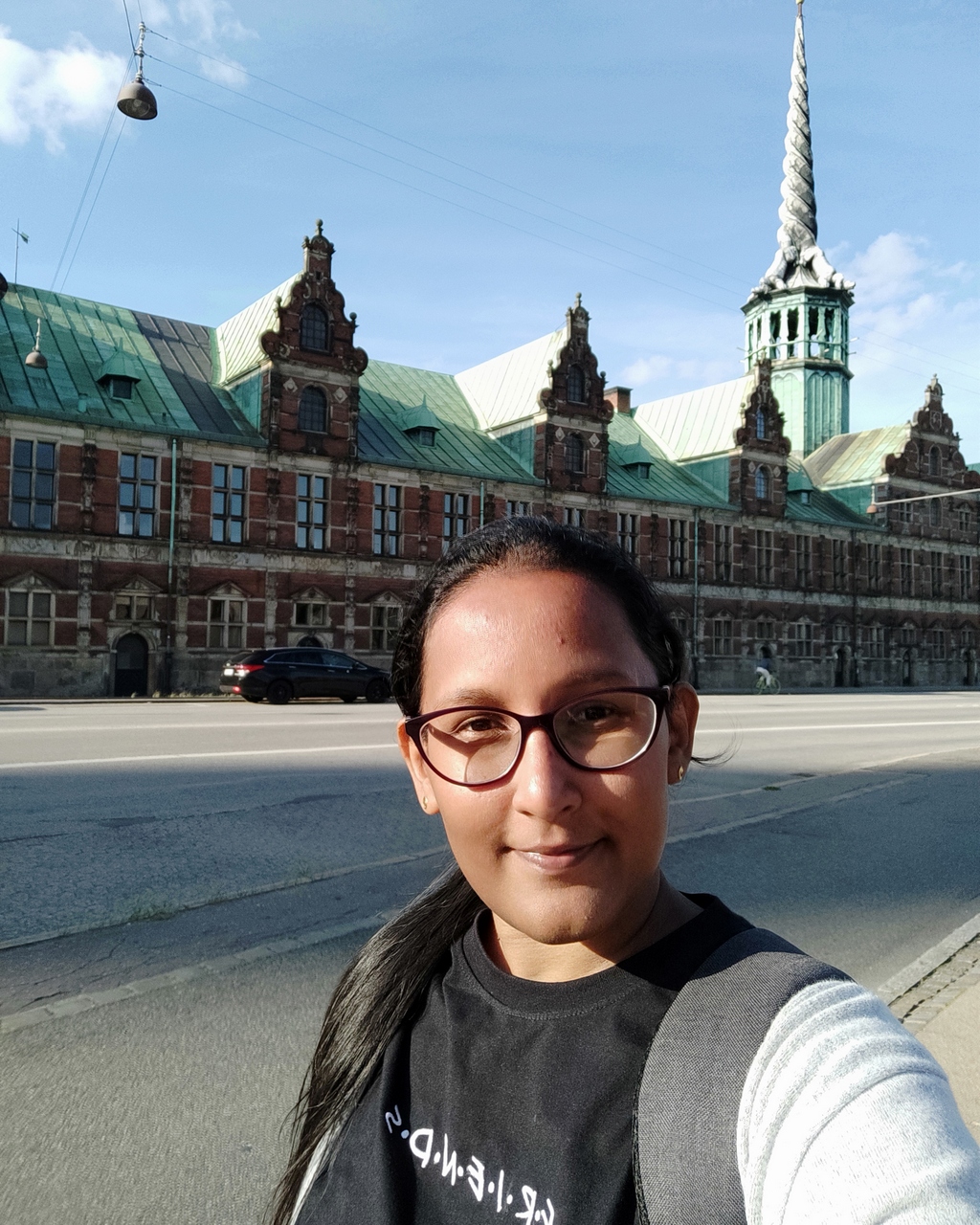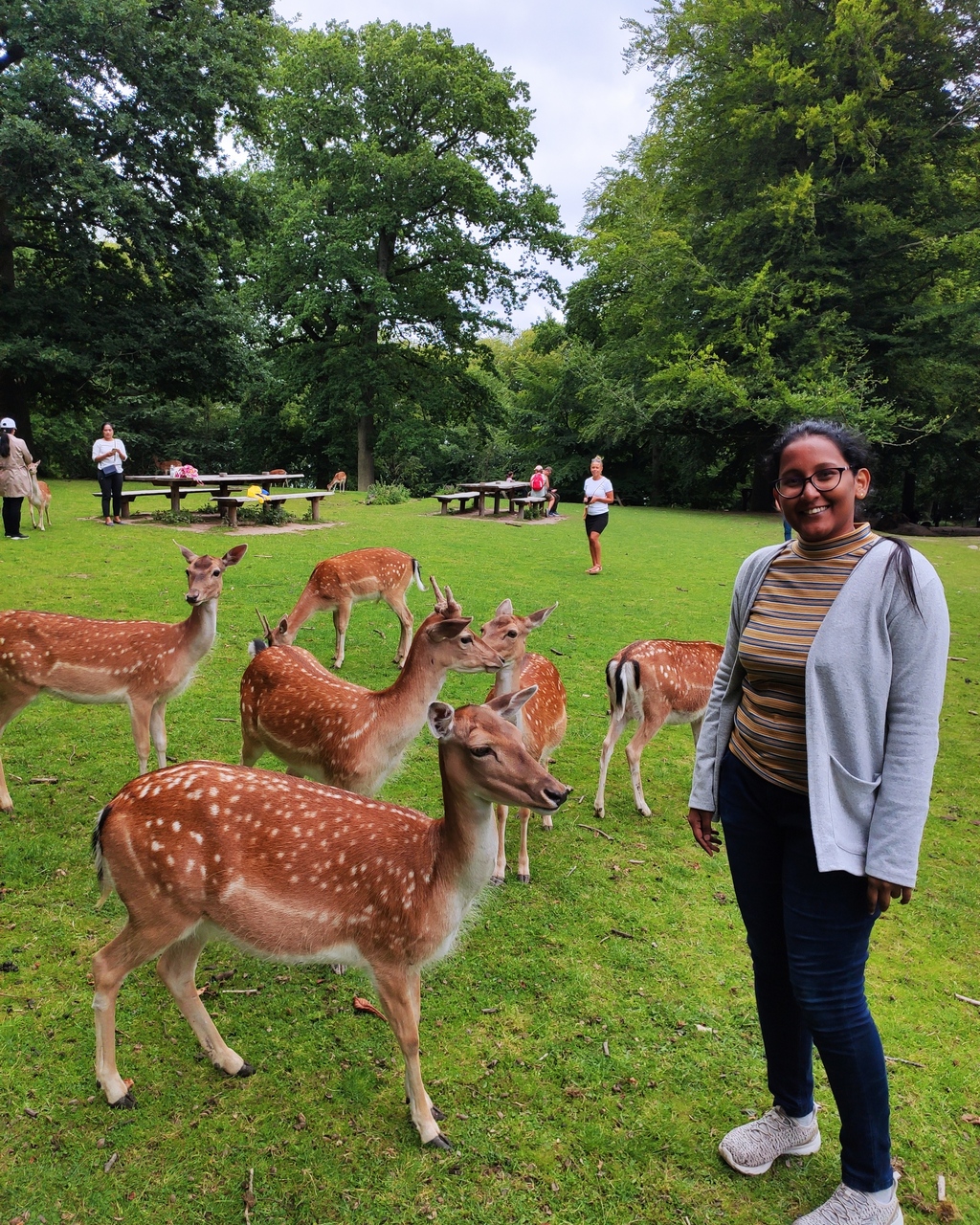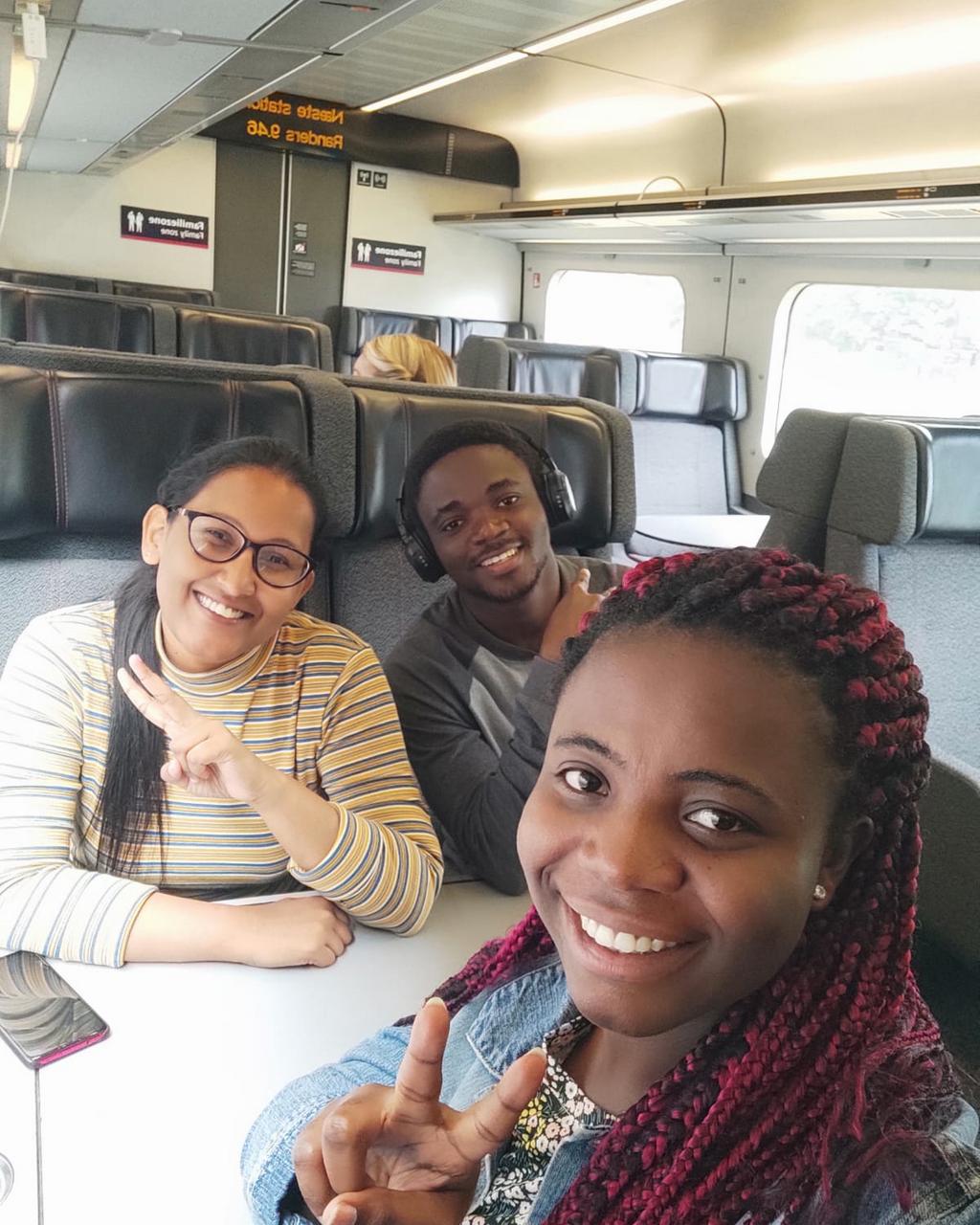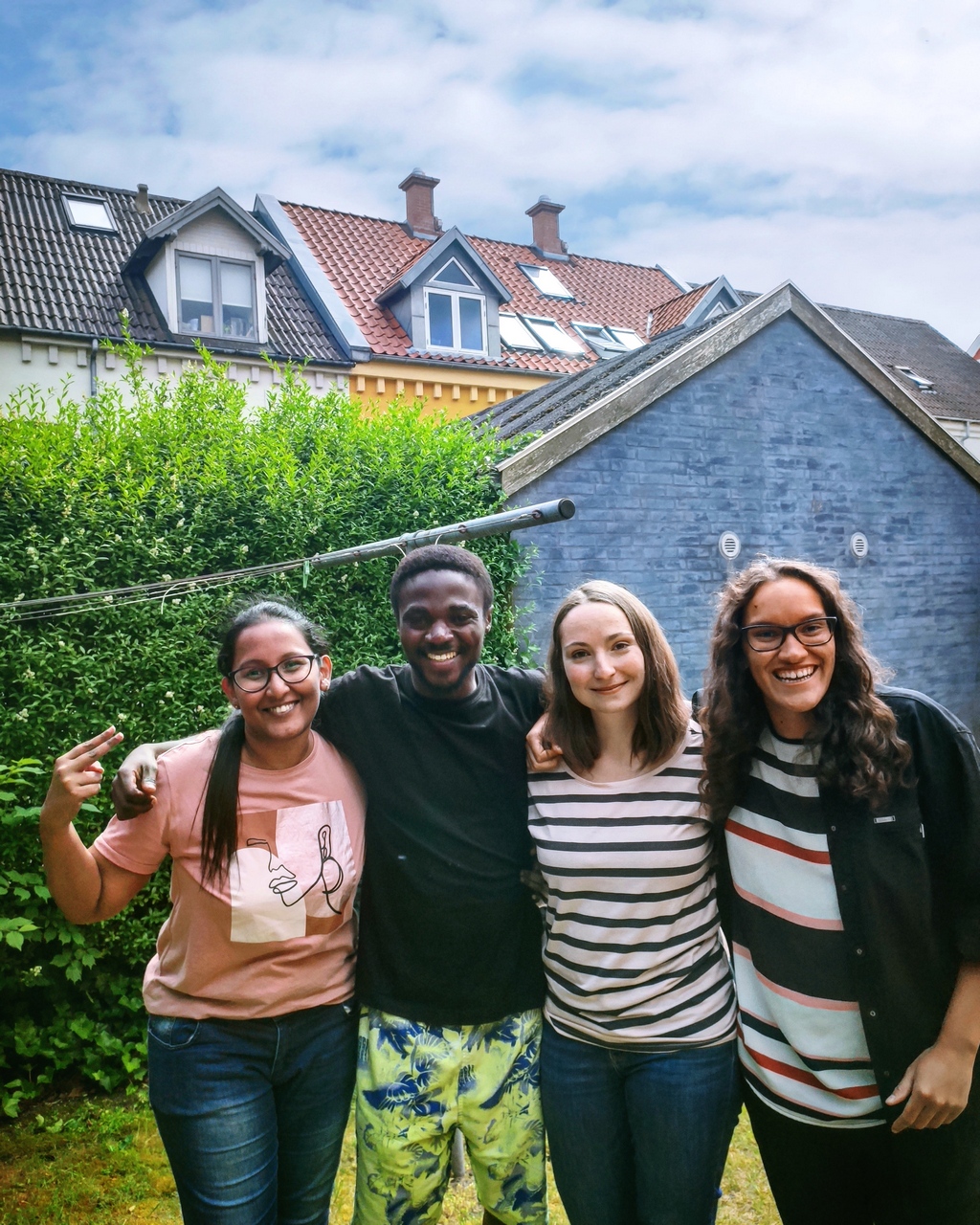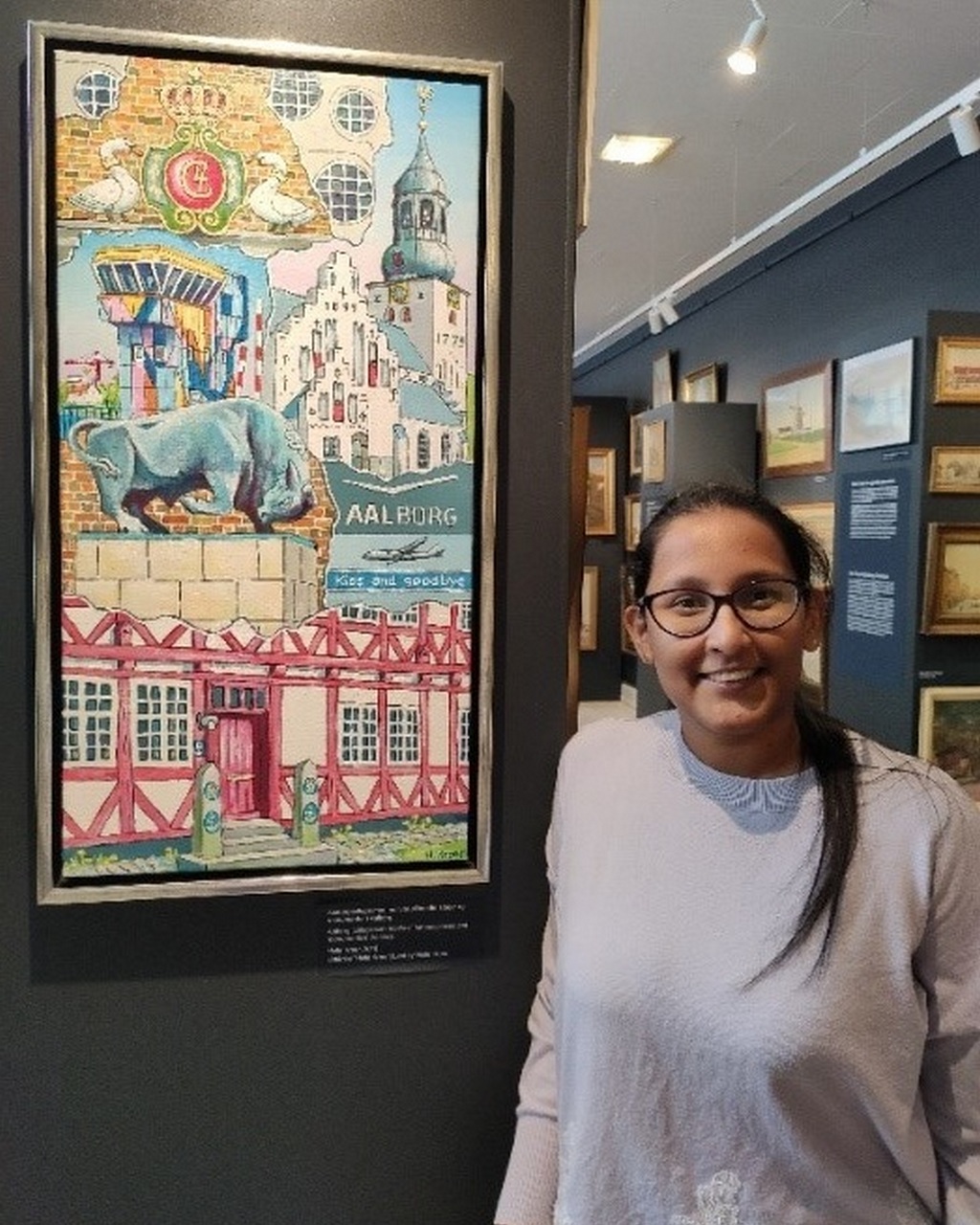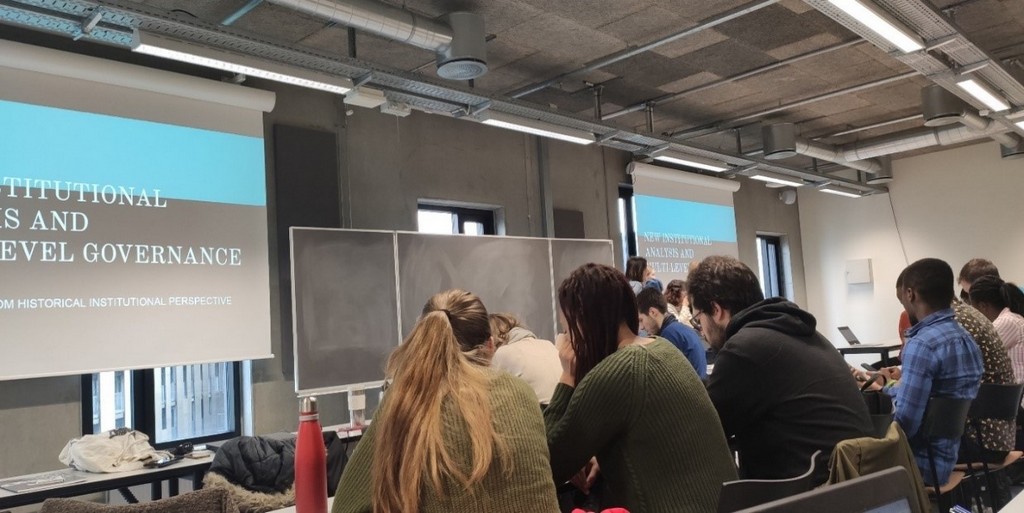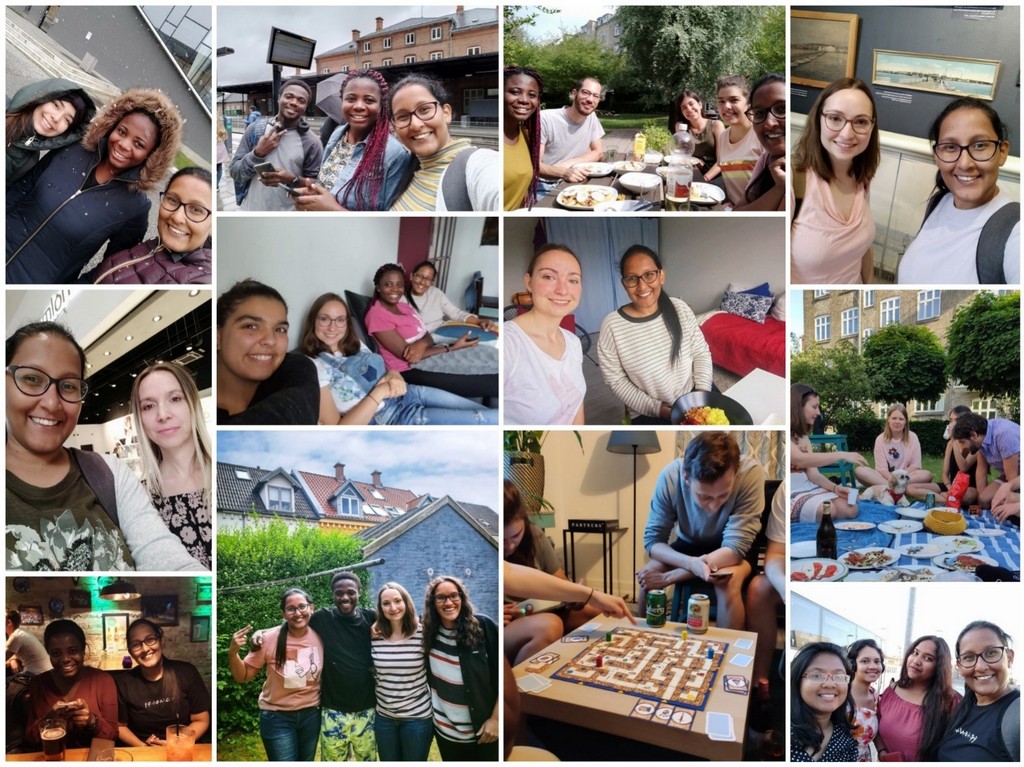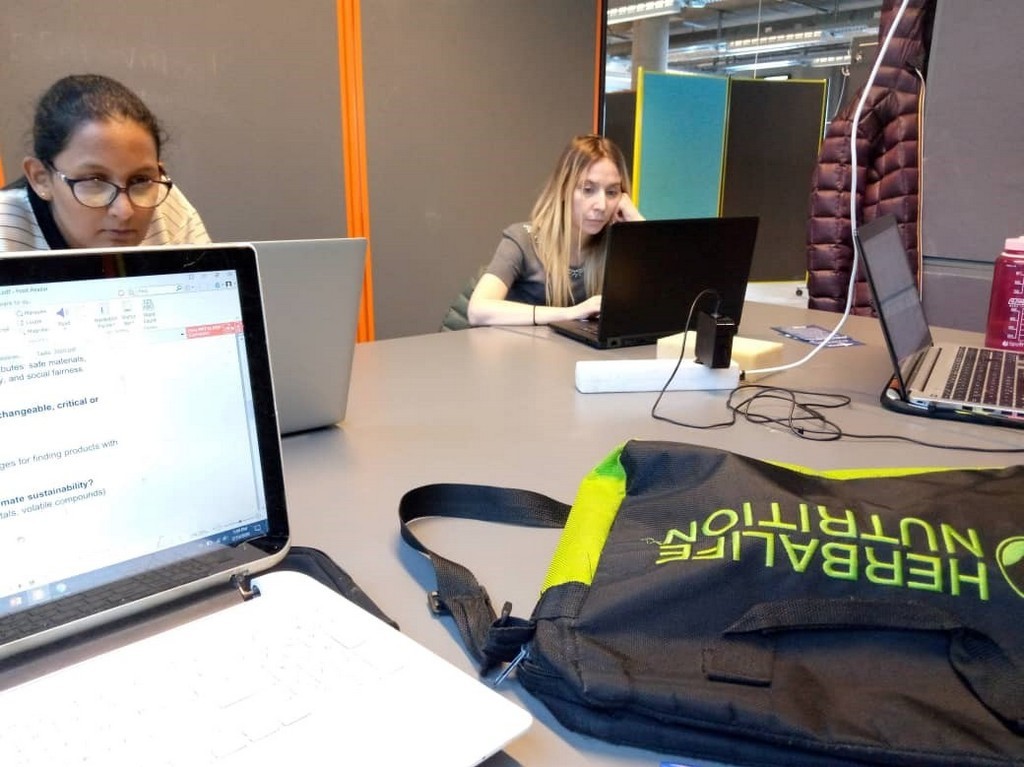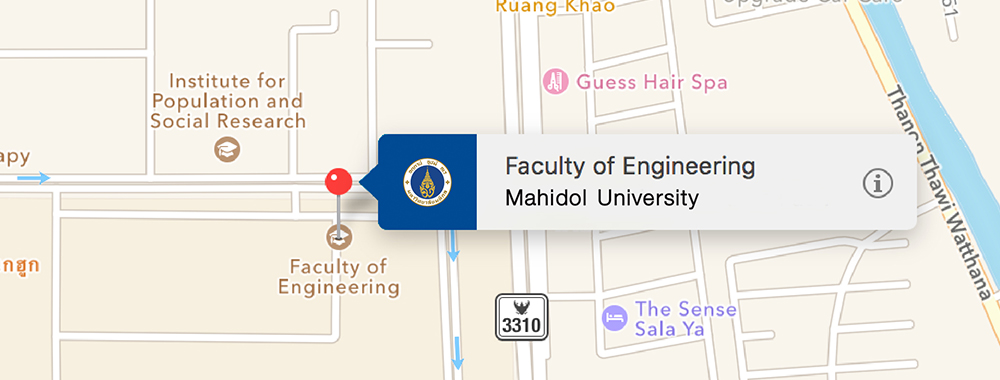Erasmus+ Experience of Mahidol EGEW Student at Aalborg University in Denmark
Erasmus+ Experience of Mahidol EGEW Student at Aalborg University in Denmark
Ms. Balasuriyage Thulangi Gayathma Balasuriya – a master student under the International Master Program in Environmental and Water Resources Engineering (EGEW), Department of Civil and Environmental Engineering, Faculty of Engineering, Mahidol University – obtained the Erasmus+ funding and carried out the full semester exchange at Aalborg University under the Master Program in Urban, Energy and Environmental Planning with specialization in “Environmental Management and Sustainability Science” from 1 February to 30 June 2020. She also got an extended funding support to stay in Denmark until early September 2020 due to COVID-19 pandemic.
In this article, Thulangi would like to share her impressive, incredible, and unforgettable Erasmus+ Experience to inspire future participants in this funding scheme.
My Erasmus+ Experience in Denmark
By Ms. Balasuriyage Thulangi Gayathma Balasuriya
“The world is full of wonderful things you haven’t seen yet. Don’t ever give up on the chance of seeing them” is a famous quote by J.K. Rowling, the writer of the “Harry Potter” series, and I realized it during my exchange program in Denmark.
Looking back at my time as an exchange student, I'm more grateful for this invaluable opportunity and unique experience to learn and grow in such a multicultural and inspiring environment. I have been dreaming of studying in Europe since the beginning of my higher studies, so I was inspired when this opportunity was offered to me. Denmark is a wonderful country with a peaceful environment, and I never had any regrets about the choice I made. Frankly speaking, it is quite difficult to find exact words to express the whole spectrum of feelings, emotions and thoughts with this experience. In simple, I can say this was one of the most impressive, incredible, and unforgettable experiences in my life! Here are the snatches of experiences and memories of my exchange program.
Aalborg University (AAU) is a Danish public university with campuses in Aalborg, Esbjerg, and Copenhagen and is among the leading universities in the world. During my exchange, I studied at CREATE campus (Rendsburggade 14, Aalborg). It has a conducive environment for its’ students with a beautiful waterfront (Limfjord) view.
Teaching and learning practices at AAU are entirely advanced and a different system than I was used to. AAU has its own unique method called Problem Based Learning (PBL), also known as the Aalborg model is a student-centered learning method that provides students with tools for the independent acquisition of knowledge, skills and competencies at an advanced academic level. In addition, this learning method engages students to take a challenge of the real world and solve them through meaningful projects. At AAU, every semester has a theme that students and teachers need to work on. Accordingly, the program I enrolled in, Environmental Management and Sustainability Science (EMSS), had the theme of sustainability management in a societal and institutional perspective. Under this theme, I had a good opportunity to learn a totally different and modern perspective of my field of study; understanding and handling the societal level challenges related to sustainability issues through three-course modules and a semester project.
Some of the interesting things I have experienced at AAU were that even though the lecture duration was three hours, the lecturer takes only one and half hours for his lecture. Student groups are allowed for one hour to discuss and work on how to apply the theories learnt in the class to their respective semester projects. Working as a group was also quite challenging at AAU. It was completely different from what I used to experience in working as a group. Since other members tend to have divergent ideas, opinions and attitudes, it required a good discourse. It makes us respect other's opinions while widening our thinking ability, knowledge and perspective of looking at a problem from different angles. The remaining half an hour is for a plenary discussion that we could discuss the unclear sections, issues when applying the theories and our opinions. Also, I had the chance to learn from some of the experts of their expertise related to my field. Not only that, the exam style at AAU is also another interesting and new experience for me where I got a chance to experience both oral and written exams. The exam questions are designed by allowing students to demonstrate their knowledge, skills and competencies through open-ended questions and reviewing other’s work which is also a part of it. Overall, this learning method improved my perspectives of seeing things from a different angle and broader, critical thinking, decision-making ability, language and communication skills and teamwork within a short period.
However, the university temporarily ceased the operation at the beginning of March 2020 due to the Covid 19 outbreak and moved the teaching and learning to virtual platforms. In the beginning, it was pretty hard to adjust to the online learning methods as I never tried that before. However, all the lecturers dedicated their best to deliver lectures and exams through digital platforms in line with the schedule. As I think, the most challenging task was doing the semester project and assignments as a group via online. Because it required a lot of discussions and earlier, we could gather on our working space at AAU to work together, but we had to change it to the virtual meetings where we had to spend 8-9 hours in front of a digital screen which was quite hard. However, I believed that this was also a part of the experience in a new normal environment.
I believed that exchange opportunity is not limited to studying, but also engaging with social, environmental and cultural activities, enjoying and being with friends, learning their lifestyle, knowing about different cultures, and travelling around the country as well. The Erasmus+ program connects people all around the world to study in a good environment where diversity makes it more inspiring. In the first week at AAU, we were given a nice and warm welcome with a city walk around Aalborg city and an international night where we had a chance to get to know other international and Danish students. During the six months I stayed in Denmark, I felt like I travelled around the world thanks to the very good friends I have met from different parts of the world, including Germany, Denmark, France, Italy, Colombia, Romania, Ghana and many more.
Although we could not hold large gatherings due to the Covid outbreak, we met in small groups once restrictions were loosened during the summer. Some of my favourite memories were playing board games (quite new to me), summer picnics, endless talks about different cultures, customs, beliefs and trying out authentic foods in other countries. It is a priceless experience where all started with a simple conversation and ends with life-long friendships.
Initially, I had an idea to visit few other neighbouring European countries during the period. Unfortunately, I had to change all my travelling plans due to the Covid 19 outbreak. So, I was limited to travel within Denmark when restrictions were slightly lifted off. So, I travelled around Aalborg city first and later travelled to other cities too. Copenhagen, Aarhus and Skagen are the most memorable destinations that I have visited in Denmark. Among these, the Copenhagen trip was quite special for me as it was the first time I was travelling alone, which I always wanted to try at least once in my life. It was one of the safest and remarkable journeys in my life. Rest two, I travelled with my friends. So, I'm glad that I got a chance to try both. Some of my memorable locations were the northern tip of Denmark where the North Sea and Baltic Sea meets, iconic little mermaid statue, Rosenberg castle, Black Diamond (the national library), Tivoli, Natural History Museum, Copen Hill (world's cleanest waste to energy plant), Nyhavn, Aalborg Museum, Marselisborg deer park, ARoS Art Museum, Aalborg Street Arts and many more.
Before visiting Denmark, I did not know how this exchange opportunity would change me. Being an exchange student made me much more self-reflective, looking at things with an open mind and strengthening my ability to confront changing environments. It helped me get to know myself in a better way and face challenges. Although I'm saddened that I could not further experience the exchange student life due to the Covid situation, I can imagine how wonderful it would be in a free environment evaluating the experiences that I could gain even with this situation. So, it was a valuable and life-changing experience that I never imagined. It pushes me out of my comfort zone and brings me challenges and memories. But most importantly, all of these are a part of one great experience that makes me grow as a person and is all absolutely worth it.
This exchange has greatly impacted my long-term career. Immediately after my exchange, I have got a part-time job as a research assistant at the Eco-Efficient Engineering Research Lab (Mahidol EcoLab) in Mahidol University, Thailand. Also, I has gained benefits in collaborating with Dr. Agneta Ghose in the Department of Planning, Aalborg University, Denmark, subsequent to the Erasmus+ exchange for my research works. The collaboration resulted in various outputs; including a conference paper to be presented at the 8th International Conference on Green and Sustainable Innovation (ICGSI) in November 2021 under the title of “Inconsistency in Life Cycle Inventory and Life Cycle Impact Assessment Modelling: A Case Study on Marine and Freshwater Eutrophication” and an international journal paper to be submitted under the title of “Assessment on Eutrophication Potential of Fertilizer Application in Agriculture Systems in Thailand”. Based on the assessment, the mobility and the experiences gained have profoundly increased my chances of getting a job after graduation, and I have a great opportunity to share and apply the modern expertise and knowledge to serve not only my country but also anywhere in the world it needs arises.
Finally, I would like to give my sincere gratitude to Assoc. Prof. Dr. Martin Lehmann (Aalborg University, Denmark) and Assoc. Prof. Dr. Trakarn Prapaspongsa (Mahidol University, Thailand) for conceding me this invaluable opportunity and extending guidance and kind support during my stay. Also, I would like to extend my great thanks to the Erasmus+ program for granting me a scholarship to facilitate my mobility. Further, I take this opportunity to thank all lecturers and staffs in both universities, friends I met and those who supported me immensely.
